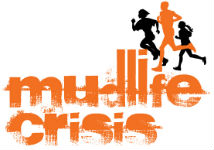I talk a lot, in my blogs and outside them, about how mankind is hard-wired to the natural world and how the people who are truly the happiest and most successful are those who have figured out how to live in accordance with that natural heritage.
A lot of my impetus from this has come from people like Frank Forencich, author of books like Beautiful Practice: A Whole-Life Approach to Health, Performance and the Human Predicament.
Forencich has released a new blog post entitled “Wising Up.” Originally posted in Paleo Magazine, Frank talks in it about how the original Latin taxonomic name for human beings, Homo sapiens, comes from Carolus Linnaeus and is basically saying that human beings were separate among the other humanoid species that have existed throughout history because of their wisdom (the Latin word sapiens is defined as wise, sensible, or judicious).
But I was struck by something the other day that made this post seem more poignant to me. Years ago, I watched the first Jurassic Park movie, the one where they first went to the island and saw the dinos, and then Newman from Seinfeld set everything higgledy-piggledy for money. And recently, because my 7-year-old daughter told us she wanted to see Jurassic World, we had her watch Jurassic Park till she decided it was too scary. (she lasted till the scene with Newman getting his just desserts from a dilophosaurus – in case you were wondering).

Jeff Goldblum as Ian Malcolm in Jurassic Park
The character that always struck me as the wisest, even though he was sort of a jackass about it, was Ian Malcolm – the chaos theorist played by Jeff Goldblum. He was the one who was most skeptical about the park and bringing dinosaurs back to the earth. And he had some wonderful lines about science in general and the wisdom that it takes to manage it properly:
John Hammond: I don’t think you’re giving us our due credit. Our scientists have done things which nobody’s ever done before…
Ian Malcolm: Yeah, yeah, but your scientists were so preoccupied with whether or not they could, that they didn’t stop to think if they should.
How many times do we, as a species, create something without understanding or even exploring the problems that the science might cause? Do we present new ideas to the world and let them be discussed? Or do we simply look at how they should be marketed and rush them to the stores? Or onto the battlefield?
I wrote a post a while back titled Embrace “First World Problems” and Get More Movement. It was exhorting us to avoid doing things the “easy way” because doing things the easy way actually leads to more problems down the road. Sure, it’s easier to get that riding lawn mower to mow your acre of lawn, but is it better for you? Would it be better to have a smaller yard and use a push mower to give you more movement opportunities?
We frequently need to look at the activity of our days with some mindfulness and a critical eye. We’re currently living in a society that sees nature as something that is to be visited when you can get away from your computer for a while. You’ll get there over the weekend, maybe – if there’s not something good on TV. We look at food as a pile of calories (and MAYBE some nutrients), instead of the building blocks of who we are.
It’s hard for us. We don’t live that long. A lot of the problems we’re creating now we’ll never see, because we’ll have passed on and our children and grandchildren will have to deal with them. But perhaps the problem is our mindset about such things. I think of the philosophy of the Iroquois Confederation of North America and their idea of Seven Generation Sustainability:
In all of your deliberations in the Confederate Council, in your efforts at law making, in all your official acts, self-interest shall be cast into oblivion. Cast not over your shoulder behind you the warnings of the nephews and nieces should they chide you for any error or wrong you may do, but return to the way of the Great Law which is just and right. Look and listen for the welfare of the whole people and have always in view not only the present but also the coming generations, even those whose faces are yet beneath the surface of the ground – the unborn of the future Nation.
If this was how we considered things, instead of what was going to make us the most money, or what was going to allow us to get that new car, or what was going to make people’s lives “easier,” perhaps we’d be worthy of the name Homo sapiens. And this is just a small example of how different pre-modern societies thought and acted. There are hundreds of others.
And I don’t think it’s just a matter of not having learned about the conveniences of modern society or anything like that. There are plenty of stories of people who are taken from their native lands, learn the ways of civilization and all the plenty that we have… but then they return to their original lands and revert back to a less cluttered society where food is to be had almost at will if you know where to find it. The modern lifestyle simply doesn’t make sense to a person who is raised in an environment in harmony with nature, and whose wisdom is derived from that relationship.
So I challenge each of you today: what changes can you make to your mindset that might set you on the path to greater wisdom about the world and your place in it?






